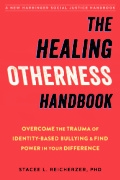What if I told you that every humiliating memory you have could be retooled so that instead of causing you to re-experience its pain and reflexively trying to block it from memory, you could use it as a source of strength? Allow me to introduce a new self-help technique that I adapted from my therapy practice: the humiliation showdown.
Whenever you recall a humiliating experience, you feel immediately self-conscious and may even wince from the painful sensations that accompany the memory. You try to shut it out from your conscious thoughts. Most people go through life doing this because we never learned how to unpack these awful memories from our lives.
Humiliation is a form of relationship trauma involving two or more, or even many people. It tends to reflect deeply exploitative and abusive situations in which we were victims. The most insidious part is that we carry the memory of it throughout our lives, allowing these years- or decades-old memories to impact our adult relationships in ways that we don’t often see.
Even as we develop adult networks of people who love and are protective of us, we don’t often connect the dots between these healthy relationships and their potential role in our healing journeys from previous humiliation-based torment. Doing so though can severely lessen the stranglehold these old memories have in our present lives.
Here’s how it works:
Bring to mind a memory of humiliation in an area that you recognize may be holding you back in some way.
Instead of attempting to immediately block the memory from your forethought, simply notice the physical sensations (wincing, shoulders tensing, stomach churning), the emotions which may accompany it (perhaps terror, bewilderment, or others), and the beliefs about yourself (“I am filthy,” “I am disgusting,” or whatever might be there for you) that this incident taught you.
Close your eyes and allow your mind to float back to the first time you experienced these thoughts, feelings, and physical sensations*. This will bring you to an early humiliation memory. Jotting down a line or two about the incident may be helpful, although a list of details isn’t necessary.
When you bring this event to mind, you’ll no doubt notice other accompanying experiences. You may recall a sense of confusion as if you weren’t quite clear on what was happening. Betrayal is also a feature of humiliation, which is of course part of the confusion.The sensations that accompany a humiliating memory may momentarily wash over you. Instead of allowing this, we will use the showdown technique.
Bring to mind your closest allies. These can be friends, a partner, trusted people in your community, even your adult self.
Imagine this squad of people who care about you in your present life entering this old humiliation memory now and seeing what you experienced. What would people who love you and care about your safety do to protect this younger version of you? Some will surround you, embracing you and allowing you to feel safe from harm. Others will take on the betrayer. Let them reprimand or restrain the betrayer. These are people you summoned to conscious thought so that they could defend you. If there are still others involved in this memory (maybe onlookers or someone else who directly tormented you), allow your squad to take them on as well. Maybe they scold the tormentors as wayward children, maybe they call them out for acting from their own pain.
Simply allow your squad to intervene as they would if they were in fact witnessing your younger self in trouble.
Next, allow them to accompany you out of the memory and into the present. Sit with these experiences for a while and let yourself just notice the impact of this exercise.
Having some trouble bringing these images to mind? I’ll share from my own experience. This is from a 1986 memory that I chose for a showdown.
In high school, a group of girls I thought were friends (this is a familiar refrain, isn’t it?) had convinced me that a boy was interested in me when he really wasn’t, and that he wanted us to come by his house late one night. I was early in my transgender identity development, and the girls convinced me to wear a dress. Of course, it went badly. He flew into a rage. The girls thought it was very funny. I felt confused, betrayed, and humiliated.
Using the showdown technique, I floated back to this memory. Powerful stuff emerged. First, a group of my toughest, closest girlfriends in my present life took on the mean girls of my adolescence. Let’s just say that the mean girls didn’t stand a chance. Next, a group of my guy friends from my present life encircled the kid whose house we’d visited. They gave him a good coming of age talk about the fears and uncertainty that were brewing in his 16 year-old mind. As I retooled the memory, an image of the kid as he must be today even came into the scene, in his late 40s and possibly trying to help his own son through adolescent struggles. I couldn’t hold anger toward him, for I saw in this showdown experience that he in fact was as duped as I was; probably experiencing some degree of his own humiliation.
Completing my showdown to retool this memory’s power over me, I allowed myself to be driven safely home by a friend.
Most importantly for this type of work, I drew from the love I have of people in my life today to address an adolescent memory of a humiliating event. The need for this type of work can’t be understated enough. I intervened and disrupted a powerful controlling memory of humiliation which was blocking my trust of people and creating a lot of unnecessary fear.
This memory can never hurt me again.
It may seem a bit strange to recall our past and to supplant people from our present lives into these scenarios. These old memory networks though are frozen in time and reflect nothing of our present strength, the challenges we’ve overcome, certainly all of the love we’ve earned in life just by being ourselves.
All that we have now, all that we are now, allows us to dismantle the sources of pain from the places in our minds in which these memories are embedded. In doing so, we liberate ourselves from the hold that humiliation-based trauma memories have on us; and we learn to live and act differently. When I no longer fear humiliation in my relationships, it frees me to express myself openly, to love, to trust. The wisdom of my past has taught me lessons on how to do things well; and without fear in the way, I can carry them out with creativity and zest.
You can, as well.


